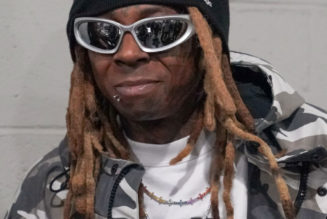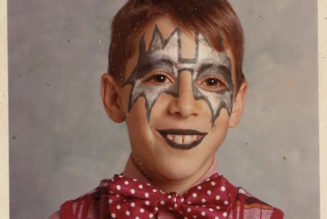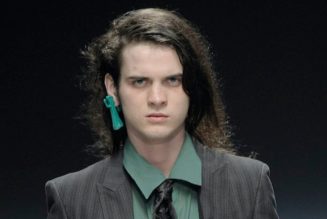
The 2018 tragedy led Lovato to suffer a heart attack and three strokes and embark on a fight for her life: “My doctors said that I had five to 10 more minutes [to live].”In an interview with The Hollywood Reporter, Dancing With the Devil helmer Michael D. Ratner, whose OBB Media produced the project, teased that whatever audiences think happened the night of her overdose and prior “is probably pretty far from what really did.” Added Ratner: “What hasn’t been documented is the details of her life that led to that night. … We provide that opportunity for you to have a whole picture here.”
And now all will be revealed in the first two episodes of the docuseries as Lovato breaks down the moment she relapsed, what led to that night and the frightening aftermath in the hospital. Below, THR takes a look at the takeaways from the first two episodes of Demi Lovato: Dancing With the Devil.
“Estranged Relationship” With Her Father
Ratner tells THR that it’s worth noting of Lovato’s story that her “decision-making of that night” started “many years” prior. To offer a complete picture of her life and the events that shaped her, Lovato speaks in-depth about the struggles she witnessed both her father and mother face. Though Lovato has been open in the past about losing her father to addiction, in the series she speaks about him at length, explaining, “Growing up my whole life, I longed for that relationship with him, and then I resented him because he was an addict and an alcoholic and was abusive to my mom.”
Lovato eventually cut her father out of her life because “it was causing more harm than good.” Though she lost her father years ago, Lovato admits his death is “complicated” because, to this day, the family doesn’t know the exact day that he died. “By the time he was found, his body was too decomposed to have an open casket. He had been laying there, I think, for about a week and a half before anybody found him — and during that was Father’s Day,” she says.
“Every summer now that rolls around, I spend it thinking, ‘Was today the day that my dad died?'” Lovato also expresses how his death led to her feeling guilt for being a mental health advocate: “Yet, here was my father, who had bipolar [disorder] and schizophrenia and then, on top of that, the disease of addiction, and I hadn’t helped him the way that I would’ve helped other people or the way that I have been preaching about.”
In regards to her mother’s history, Lovato shares that her mother dealt with substance abuse and an eating disorder. “So I didn’t know any different. Then I was put in beauty pageants where it’s extremely competitive and it’s all about your looks and your talent. My self-esteem was just completely damaged,” Lovato says, recalling a pact she would make with herself that if she didn’t win a pageant then she would “never eat again.”
Enduring Overwhelming Control From Her Team
During a recent appearance on The Ellen DeGeneres Show, Lovato explained that she wanted to “set the record straight” in the series as a way of proving that many can learn from “role models” who “have overcome their deepest, darkest struggles.” However, in the series, Lovato speaks in great detail about the pressures she originally faced from her team to be a role model for her fans, which eventually took a toll on her mentally and physically.
Lovato explains that she previously had a team that consisted of assistants, a wellness coach, dietician, nutritionist and therapist, all of whom would help monitor her and ensure she wouldn’t relapse. It’s also revealed that anyone around Lovato had to be drug tested, and she wasn’t allowed to hang around anyone who wasn’t sober. Her former assistant Jordan Jackson admitted that there was one night she had to spend the night with Lovato because the singer simply ate a cookie.
With so much monitoring and restriction, Lovato says she started relapsing in her eating disorder, as she consistently overexercised and was extreme dieting: “I feel like decisions have been made for me more so than I have made decisions for myself.” In an interview with CBS Sunday Morning, Lovato further divulged that she also was not in control of her finances, and every time she was in a hotel room, the phone was removed so she couldn’t order room service.
In unreleased footage from her shelved documentary, Lovato can be seen having an emotional conversation regarding sketches of her tour costumes. “There’s just so much pressure as a female in the industry to look a certain way and to dress a certain way and that shit is the stuff that I used to look up to. That s–t’s, like, really triggering,” she says on the verge of tears. Lovato’s friends and family also speak about the restrictions she faced. Lovato’s former choreographer and creative director Dani Vitale says, “I feel like I was always walking on eggshells no matter what. What I was eating around who, what we had in our dressing room, what kind of food.”
Meanwhile, Lovato’s sister Dallas Lovato explains, “It was hammered into her head: ‘You have to be sober. You have to be this icon, this role model’ that my sister never claimed to want to be in the first place.” In footage from her former documentary, Lovato’s friend and former sober companion Sirah added that the singer almost became like “a martyr in a way that is so isolating. … I think that to be the poster child of perfection and mental health and all these kind of things is such a dangerous slippery slope.”
“I’ve spent more time trying to please other people the past several years of my life than I have really trying to make it what I want,” Lovato says. “I was miserable and I, like, snapped.” She later points out that “six years is a long time to be told that if you slip up you’re going to die. And at some point, enough just becomes enough.”
Relapsing
Growing miserable while under restrictions and pressures, Lovato recalls being at a photoshoot and having the thought, “I don’t even know why I’m sober anymore.” That same night, Lovato admits, she drank a bottle of red wine then contacted someone who had drugs on them. “I’m surprised I didn’t OD that night,” Lovato says, sharing that while attending a party, she reunited with her former drug dealer from six years prior.
“I just went to town. I went on a shopping spree,” she says. That night she experimented with drugs she had never tried before including meth, which she admits she mixed with ecstasy/molly, cocaine, marijuana, alcohol and oxycodone. “That alone should’ve killed me,” she says. Weeks later, Lovato says she was introduced to heroin when her drug dealer only had that instead of her usual “cocktail” of “coke and Xanax” (she explains that she “loved the combination” of it being “an upper and downer”).
“I started using recreationally, and obviously, you can’t do that with heroin before you become addicted to it,” she says. Her friends Matthew Scott Montgomery and Sirah explain that they, along with her family, were not aware of the drug use, but there were “red flags.” Montgomery recalls driving over to Lovato’s house after she told him she decided to drink again. Expecting her to be in a bad condition, Montgomery says he surprisingly found her drinking and fine.
Meanwhile, Sirah recalls that during a friend’s game night she found Lovato upstairs in the bathroom with tin foil and smoking. “She didn’t even notice I was there and I was horrified and devastated,” she says. She stayed there to make sure Lovato was OK then told Lovato the next day that she needed to seek help. Lovato says it was during a trip to Bali that she realized she had become “physically dependent” on heroin. She would then write her 2018 song “Sober” in which she admits to her relapse and sings lyrics such as, “I’m sorry to myself” and “To the ones who never left me/ We’ve been down this road before/ I’m so sorry, I’m not sober anymore.”
She eventually went on her Tell Me You Love Me tour where she says she was drinking alcohol excessively. In footage from her shelved documentary, Lovato can be seen partying in a bar and demanding the bartender give her more alcohol. After returning to L.A., she says she began using heavily again: “None of my friends knew what I was using so I kept it very hidden from everyone. That is one thing that I was very good at, was hiding the fact that I was addicted to crack and heroin.”
“She can hide stuff really, really well,” Montgomery agrees, whereas her sister Madison says, “Demi is very good at hiding what she needs to hide.” “Demi’s good at making you believe that she’s OK,” Lovato’s stepfather Eddie De La Garza adds. Lovato notes that it was “unfair” to those around her at the time given how much she was “manipulating” everyone and “making sure they never found out” about her secret drug use.
The 2018 Overdose
After admitting to being dependent on heroin and secretly using hard drugs, Lovato chronicles the night of her near-fatal overdose. Lovato narrates that she was out celebrating a birthday with friends, all of whom were unaware of her recent relapse. In photographs from the night, Lovato can be seen posing at the bar past midnight. The group would eventually return to Lovato’s house for an afterparty, with Vitale saying she felt “comfortable” after Lovato offered everyone La Croix and they just danced on the roof and had fun.
“When I was leaving the house, I just felt a little odd,” Vitale says, recalling thinking that she felt she needed to stay for some reason but couldn’t explain why. Lovato says at 5:30 a.m. she told everyone she was going to bed, but instead, she called one of her dealers over. Jackson, who found Lovato that morning, shared that she arrived at the singer’s house early because Lovato had wanted a doctor’s appointment.
Jackson said she kept knocking on the door to Lovato’s room to no answer, which eventually led her to go inside. “It was really dark and cold in her room and I kind of got chills. Honestly, I thought that she was just drunk or hungover so I started to nudge her a little. … She wasn’t really moving. She was, like, drooling,” Jackson says, saying she immediately called Lovato’s head of security and chief of staff Max Lea.
“She was propped up, vomit everywhere, but she was on her back, which isn’t good,” Lea reveals, adding that he instructed security to put Lovato on her side and clear her throat. Jackson also recalls the frightening scene of watching paramedics use Narcan in an attempt to bring Lovato back to life: “There was one point where she turned blue. Her whole body completely turned blue.” Lovato’s parents, sisters and friends also emotionally recall receiving texts and phone calls about the news, unsure what had happened, followed by panic at the thought of Lovato not making it.
Recovering in the Hospital
The scene at the hospital grew more terrifying given Lovato’s condition. Lovato’s neurologist, Dr. Shouri Lahiri, says that Lovato’s oxygen levels were “dangerously low” at 70 percent. “It was like a horror movie,” Lovato’s mother, Dianna De La Garza, says. “They put her in ICU. She had a tube in her neck that was taking her blood into a machine, cleaning it and then putting it back into her neck.” After asking the doctor what would happen if the tube was accidentally pulled out, Lovato’s mother said she learned the tube was “sewn into her neck.”
“I don’t think people realize how bad it actually was. I had three strokes. I had a heart attack. I suffered brain damage from the strokes. I can’t drive anymore and I have blind spots in my vision,” Lovato says. “I also had pneumonia and multiple organ failure.” Lovato recalls being surprised when she woke up because she hadn’t injected any drugs into her system that night, but rather smoked them. “I’m really lucky to be alive. My doctors said that I had five to 10 more minutes and had my assistant not come in, I wouldn’t be here today.”
Things grew more emotional when Lovato’s younger sister sat next to her in her hospital room, only to have her ask, “Who is that?” Lovato was “legally blind” when she woke up — Lahiri says that the areas of Lovato’s brain that were initially affected were her vision centers at the back of her brain. Lovato has opened up in a previous interview that she sought treatment because her parents threatened that she couldn’t see her younger sister anymore until she got sober. With tears streaming down her face, Lovato admits it’s “ironic” and “in a weird way, poetic” that she literally could not see her sister when she woke up: “I think that God has a twisted sense of humor sometimes.”
More From the Night of the Overdose
“What people don’t realize about that night for me is I didn’t just overdose. I also was taken advantage of, ” Lovato says. The singer reveals that she learned that on that July morning, she was found naked and blue. “I was literally left for dead after he took advantage of me,” she says. “When I woke up in the hospital, they asked if I had had consensual sex.”Though everything was a blur, Lovato admits she had a flash of memory of being with her dealer and told the doctors it was consensual.
But a month after her overdose, Lovato had a moment of clarity. “I realized, ‘Hey, you weren’t in any state of mind to make a consensual decision.’ That kind of trauma doesn’t go away overnight and it doesn’t go away in the first few months of rehab either,” she recalls thinking. The docuseries also briefly aired haunting footage of her dealer leaving her house in the morning, a few hours before Lovato’s assistant found her.
“All of the daddy issues I had growing up, now I was literally discarded and abandoned. That amplified all of my Dad stuff,” Lovato says, adding that it became clear all of her “past traumas came to a head that night.” Looking back on the frightening night and surviving, Lovato says, “It was a nice reminder that it wasn’t my time.” Montgomery also shared that when the singer turned 28, they celebrated her surviving “the 27 club.” “She was where her father was, but she got through it. “The first two episodes of Demi Lovato: Dancing With the Devil are available to stream now, with a new episode airing every Tuesday.
If you or anyone you know is struggling with mental health and substance abuse disorders, contact Substance Abuse and Mental Health Services Administration (SAMHSA) by calling 1-800-622-HELP (4357). For People struggling with eating disorders can call the National Eating Disorders Association (NEDA) Hotline at 1-800-931-2237. If you or someone you know has been sexually assaulted, contact the Rape, Abuse & Incest National Network (RAINN) Sexual Assault Hotline at 1-800-656-HOPE (4673).
This article originally appeared on The Hollywood Reporter.









